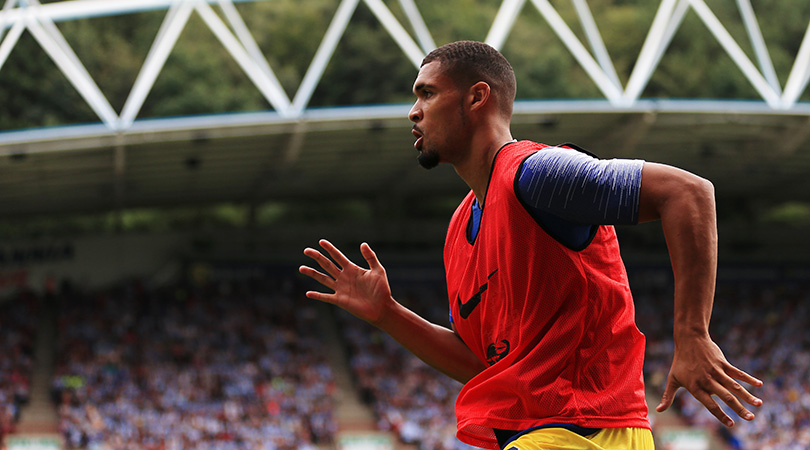How England's greatest weakness is badly exposed by Croatia and Spain
England's lack of quality passers risks being exploited by the masters of possession during this international break, as Richard Jolly explains
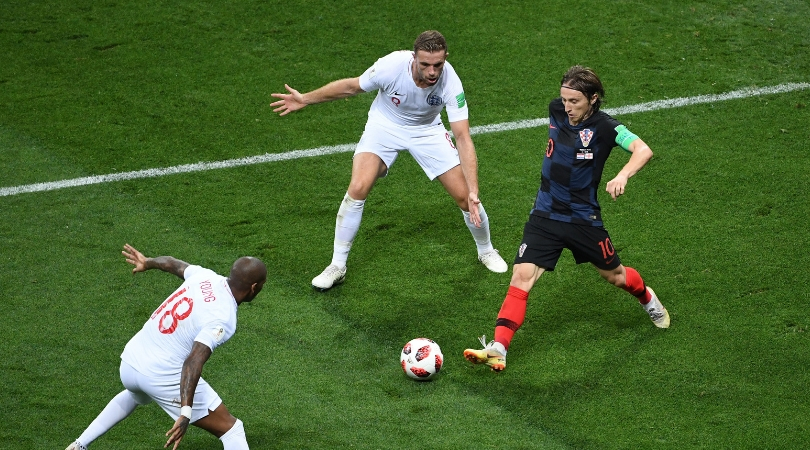
The draw felt like a correction. For the side who overachieved in the World Cup, whose passage to the semi-finals was eased and whose flaws were camouflaged by some comparatively average opposition, it felt like the UEFA Nations League groups were designed to highlight England’s shortcomings.
There may be better sides than Croatia and Spain – World Cup winners France and Belgium, twice England’s conquerors in Russia, are obvious cases in point – but none with such a surfeit of players where Gareth Southgate has a shortage; none with such a shared ethos that England cannot apply.
For all the progressiveness, cleverness and modernity of Southgate’s regime, there was an anomaly – an area in which England can look decidedly old-fashioned – being out-passed and out-manoeuvred, chasing shadows in the midfield.
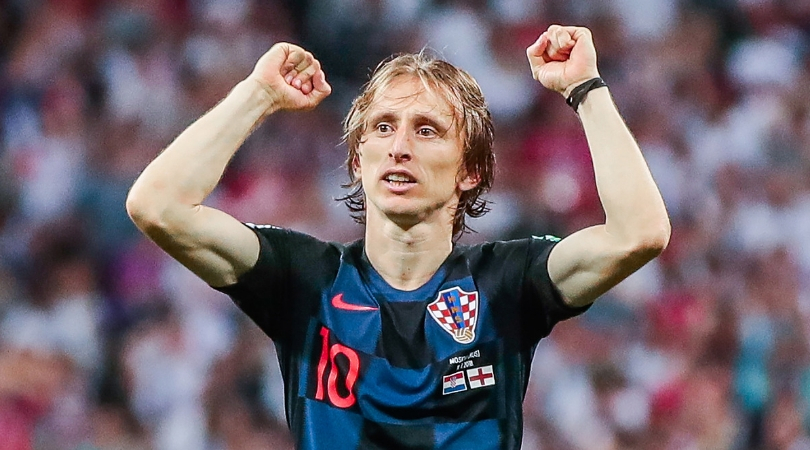
Pass masters
Friday’s rematch with Croatia is significant for Southgate’s selection of three uncapped midfielders in James Maddison, Mason Mount and Jadon Sancho. It is also notable for Zlatko Dalic’s rather more predictable choice of Luka Modric, Ivan Rakitic and Mateo Kovacic – high-class professional passers with no real English equivalent. Were Inter Milan's Marcelo Brozovic fit, it would have been a quartet.
Last month, Spain had a quartet in Sergio Busquets, Saul Niguez, Thiago Alcantara and Isco; that, at a time when Andres Iniesta and David Silva had joined Xavi and Xabi Alonso in international retirement, and when Cesc Fabregas’s international career seems ancient history. Were international football to have a transfer market, it's easy to imagine that Southgate’s first step would be to raid Spain or Croatia for a playmaker.
Until England’s semi-final against Croatia, he prospered by bypassing the areas where they ply their trade, constructing a 3-3-2-2 formation that could leave six men behind the ball, four ahead of it and no one actually on it. Kieran Trippier blazed a trail for the right-wing-back as set-piece specialist, Jordan Henderson played long passes without resembling a metronome, and Dele Alli and Jesse Lingard were eager runners who augmented the strike duo. The hole at the heart of the team hardly mattered.
The best features, fun and footballing quizzes, straight to your inbox every week.
Yet the statistics underline the stylistic differences. Modric completed the third-most passes at the World Cup, Rakitic ranked seventh and Brozovic 10th. Spain only played four games, but Isco still finished fourth. If it reflects the way tiki-taka became warped by the pointless passing against Russia, it also demonstrated a prowess at keeping the ball that their English counterparts lack.
The first English midfielder in the World Cup passing leaderboard was Henderson, tied in 38th. The first of the No.8s, Lingard, completed fewer than half the passes that Modric did. Over the course of the semi-final, Brozovic and Rakitic each managed twice as many.
Last month at Wembley, Thiago and Saul averaged more than three touches to every two that their English counterparts, Lingard and Dele Alli, mustered. The figures explain Spain’s 2-1 victory without requiring reference to the highlights. It illustrates the way Southgate’s solution was to harness the energy of the players available, to pit athletes against artists, but there tends to be a limit for how far teams can progress without the ball.
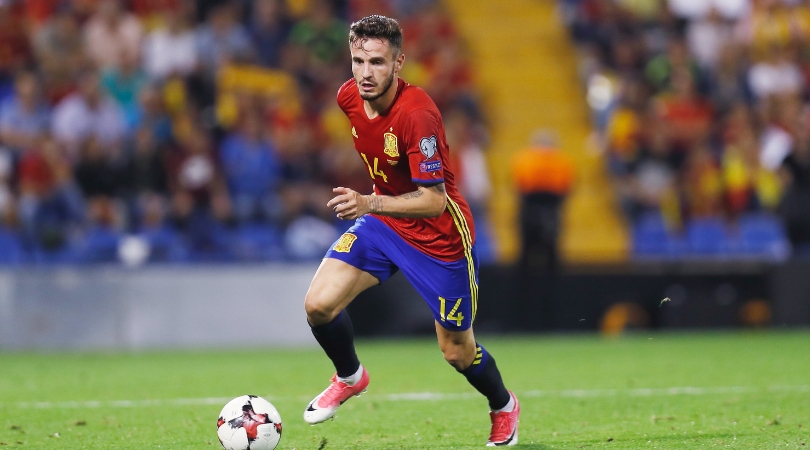
Lack of options
Now the absence of the four No.8s from the World Cup – Alli, Lingard, Fabian Delph and Ruben Loftus-Cheek – is largely attributable to injury. It creates opportunity to the untried, the barely tested Harry Winks and the returning Ross Barkley, yet it is notable that only the Tottenham midfielder is a budding playmaker.
The newcomers are all more attacking. Obvious comparisons to Frank Lampard surround Mount. Sancho is more of a final-third player; Maddison, despite time spent as a No.8 at Norwich, is a No.10 for Leicester. Barkley’s defining characteristic is his running power, not his passing accuracy.
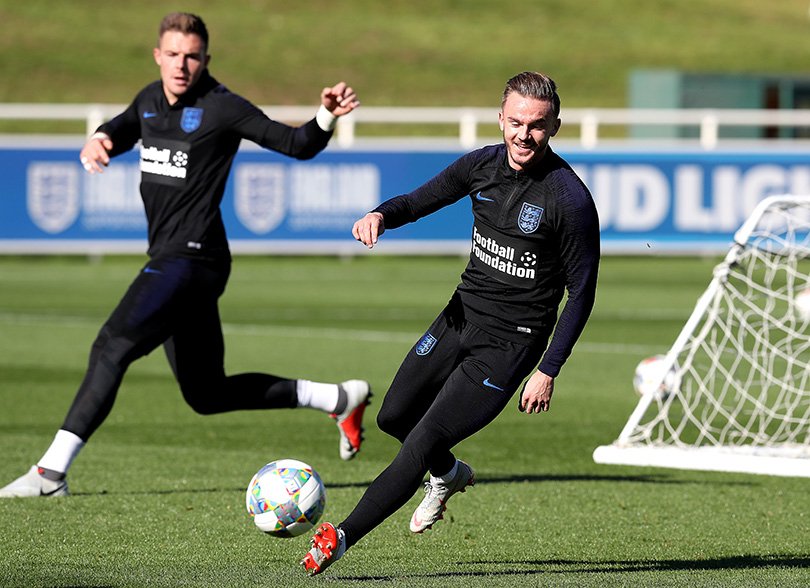
They reflect a national deficiency. Rewind a decade and look at Liverpool: it may be a simplification to say Spanish footballers wanted to be Alonso and English players aspired to be Steven Gerrard, but contrasting football cultures have produced very different footballers. England has cherished the all-action figure, capping box-to-box bursts with goals. Kevin Keegan’s recent revelation that the former Newcastle vice-president Tony Jimenez didn't think Modric was big or strong enough for the Premier League summed up the English distrust – albeit with the irony of a Spanish surname – of the specialist distributor who lacked a physical presence.
SEE ALSO Ten years on: How Kevin Keegan's romantic return to Newcastle ended with but more broken hearts
The men who could knit teams together, like Michael Carrick and Gareth Barry, went comparatively overlooked amid questions – though rarely from managers or team-mates - of what they actually did. Now the division of responsibility between defensive and attacking midfielder has been exacerbated by two-tier midfields and 4-2-3-1 formations: yet Saul, arguably, is neither and both; a player defined not by tackling or shooting, but passing.
That quest for a constant in passing moves – someone with the footballing intelligence and assurance in possession to have an elusive ubiquity – can explain Southgate’s fondness for Lewis Cook, some of the hype surrounding Phil Foden and his laments about the player Jack Wilshere could have become. What can be said, though, is that none would get in the Croatia or Spain sides. If England’s first taste of the Nations League culminates in relegation, it will be demotion by distribution, death by passing.
Richard Jolly also writes for the National, the Guardian, the Observer, the Straits Times, the Independent, Sporting Life, Football 365 and the Blizzard. He has written for the FourFourTwo website since 2018 and for the magazine in the 1990s and the 2020s, but not in between. He has covered 1500+ games and remembers a disturbing number of the 0-0 draws.
 Join The Club
Join The Club





